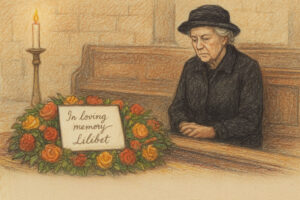Fulton Sheen tells a story of a rich woman who, although she took many humanitarian initiatives, she was not motived by charity alone, but rather there was vainglory behind her works of charity. Only occasionally she gave money just out of charity. When she died, she went to heaven and St. Peter showed her her new house, a poor and humble house amidst other big and beautiful houses and even mansions.
She started complaining about her house: “I cannot live here, etc.” And St. Peter answered her: “I am sorry madam; it is the best house we were able to build with the materials you sent from earth while you were alive.”
This simple fable is based on an important teaching that Jesus preached more than once. For example: when you give alms, do not let your left hand know what your right is doing, so that your almsgiving may be secret. And your Father who sees in secret will repay you (Mt 6:3). Jesus said this not only regarding almsgiving but also regarding prayer, fasting, etc.
Summarizing His teaching we can say that there are two ways of doing things: for this life or for eternal life. Doing things in order to be seen by people or to receive human recompense means doing things for this life. If we work in that way, we miss the supernatural reward. When we miss or rather, when we try not to receive human recompense, it is then that we allow God to give us the supernatural recompense. Why? Because we cannot receive two rewards for the same action, we cannot look both for a reward here on earth and one in heaven.
This is the difference between a hero and a saint. Both do things for people, both try to build a better world, both are dedicated to being helpful for humanity. However, the hero acts to receive a recompense here on earth, even if it is a good recompense, it is still a human action with a human recompense.
The saint, on the other hand, is not worried about the appreciation of people. If people do not recognize the good work the saint does for them, it does not matter for the saint; the saint will continue doing what he is doing, because he is not interested in human recognition, but he wants only to glorify God with his work.
If we attentively examine our actions we will discover that, like the woman of the fable, we do things for human appreciation and often we hide the human side and convince ourselves that it is for the sake of something good: we pray to be seen by others and we justify that by saying: it is an apostolate; or we give alms to be seen by others because showing others that we give is a good example; we do not say the truth because we are prudent, etc.
God knows our real intentions, so it is important to work so that we do not deceive ourselves, because in heaven, like the woman, we will not be able to convince Him about our real intentions. This is why it is always important to try to rectify our intentions.





